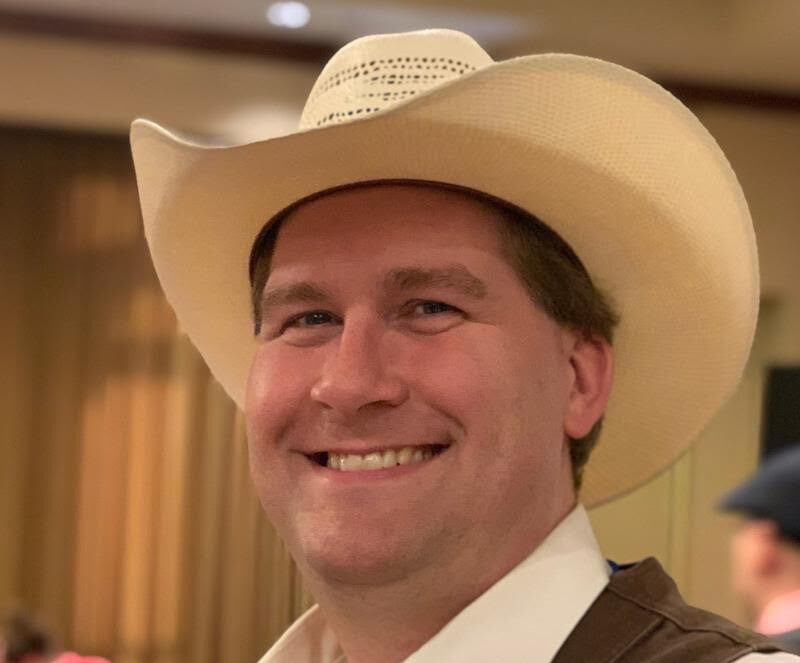
“We’re like a Tiny Epic Asmodee”: Tycoon Games CEO Dan Yarrington on the company’s ongoing acquisition spree, future plans and criticism of his past business practices
When board game crowdfunding giant CMON sold off some of its best-known titles, including Blood Rage and Rising Sun, at the end of May there was little surprise within the industry, given the company’s high-profile financial struggles over the past few months.
But the element of the deal that did catch many off guard was the buyer: not Asmodee, despite the company having reignited the acquisitions strategy that saw it swell from a specialist French operation to a global heavyweight across publishing and distribution over the past decade.
Instead, the Eric Lang designs and co-designs were picked up by Tabletop Tycoon, best known as the publisher of Everdell – and for the criticism often levelled at company founder and CEO Dan Yarrington for his past business practices.
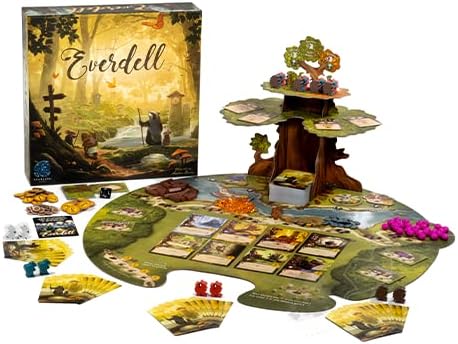
The purchases of Blood Rage, Rising Sun, Ankh: Gods of Egypt, Arcadia Quest and Starcadia Quest were followed today by a buyout of the Gamelyn brand, including the Tiny Epic series and
the Heroes of Land, Air, and Sea game lines.
They continue a string of acquisitions from the New Hampshire-based publisher over the past couple of months, including the Trailblazer game line from Mariposa Games and the Canvas line from Road to Infamy Games – and more deals are likely on the way, Yarrington told BoardGameWire.
He said, “The perception of this, I think, that we heard is ‘Wow, all these tariffs come into effect and then we’re [Tycoon Games] buying a bunch of stuff’, and that’s not what happened here.
“These deals take six months to a year to come together – so we certainly assess those sorts of impacts, how the tariffs will impact these businesses in general. A lot of our sales are overseas actually, so we’re relatively mitigated in that regard – and then a lot of our sales are direct to consumers, so through Amazon or Kickstarter or Gamefound.
“So far tariffs have not derailed any of these deals – but they’re also not the cause of these deals. Is this kind of a better deal based on the conditions of the market, so to speak? Not really – these deals that you’re going to see now and in the coming months were all in the works before that, and we have not adjusted any valuations or anything based on these conditions.
“We are kind of assuming that that’s our responsibility, as the buyer, to navigate these lines through the new market conditions, which I think will be very tempestuous for the next few years at least. So, we’ll see how that goes. But that’s not really the seller’s concern.
“So, yes, we are in the process. And again, you’ll probably see… I think we have a banner we’re prepping for our Gen Con booth that says ‘We make games, we sell games, we give games’, and then it says ‘we also buy games’. So, if you have a game that’s profitable and you want to sell it to us, come talk to us.”
The acquisitions push has been followed by a rebrand of the business from Tabletop Tycoon to Tycoon Games – a shift which will see the company focus on operating under a single brand, rather than running imprint Starling Games for its eurogames, Sparkworks for family-weight titles and Flying Meeple for kids games.
That shift is reminiscent of tabletop giant Asmodee’s recently-announced decision to push itself as an umbrella brand, rather than relying on the names of its subsidiary studios such as Days of Wonder, Fantasy Flight Games and Catan.
Those studios will continue to exist under Asmodee’s rebrand, however, while Yarrington told BoardGameWire that his imprints will ultimately be “sunsetted”, with newer editions of games such as Everdell going out under the Tycoon Games brand rather than Starling Games.
Referring to his company as like a “Tiny Epic Asmodee”, Yarrington said, “People buy Ticket to Ride because it’s Ticket to Ride. They don’t necessarily buy it because it’s that particular imprint or design.
“So as we accrue more items here, we don’t necessarily have to worry about, ‘How are we going to fit these in?’, ‘Are we going to maintain the existing brands?’.”
Yarrington said that the company’s growth over the past five years – it had reached “tens of millions” of dollars of revenue even before the pandemic-induced tabletop boom of 2021 – had left it in a position where it had capital to deploy, and M&A seemed a natural option when they began looking at it seriously about 18 months ago.
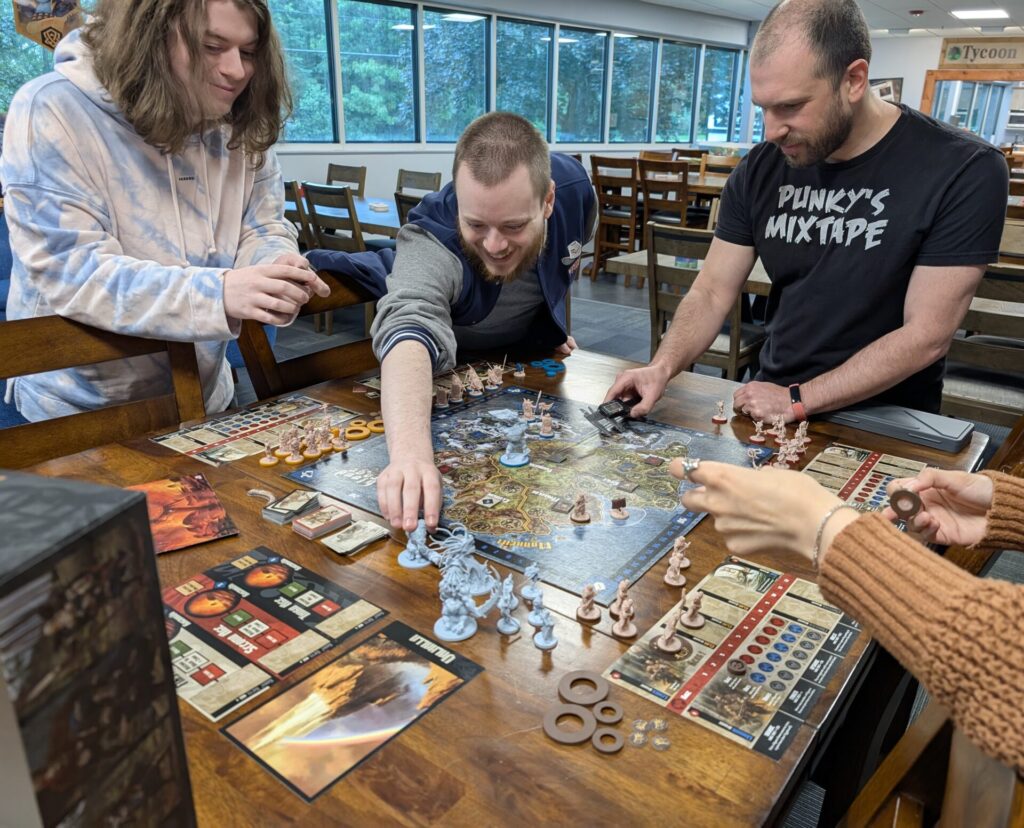
He said, “The general kind of rule for the business is you want to get evergreens – like, that’s, that’s how you win the game of board game publishing, you get evergreens.
“That’s not a secret, everybody’s trying to do that. And if anybody actually knew how to do it, meaning they were, like, ‘I know how to generate evergreens from scratch every time’… that’s the kind of secret sauce that we can’t uncover as an industry.
“So we’re still trying to make novelties and new games. Obviously we’re still trying to make originals that will then become evergreens, but the ratio on that’s fairly low, so then we said, ‘Well, we can also supplement that by buying evergreens’.
“…so a little over a year ago now, we basically just did a survey where we looked through all the all the people we know – I’ve been in the industry since 1996 – we zoom out to the whole industry, and we say, ‘Okay, what games?’ – specifically games, not companies – ‘What games would we like to add to our portfolio?’
“And then we say, ‘Well, then let’s find out if we can.”
“…we’re looking at, primarily, games that have a long-established record of sales. We didn’t want things that were just, ‘Oh, it did a big Kickstarter campaign. It had a big spike’, because that’s very typical, actually, and then it just dies.
“We wanted something that was showing a steady – maybe a little bit up and down – but it was showing a steady upward trajectory.”
He added, “We usually don’t want things that are active, because there’s usually some complications there. So if you have an active Kickstarter campaign or something, who’s fulfilling it, you know?
“And strategically, we don’t want dead games – we don’t want to resurrect things. We’re not some sort of necromancer here.
“We might reprint games that are out of print, but that’s kind of a separate thing. That’s not really an acquisition, that’s more like Allplay bringing back Through the Desert or something like that, right? So that’s kind of a separate piece that we would count under, kind of, original.”
Yarrington said that Zombicide – which was bought by Asmodee in mid-June – had also been on his wishlist when he first began discussions with CMON just over a year ago.
He said, “You start, and you ask for kind of everything you want – and you don’t know unless you ask. And then pretty rapidly you’ll know [if it’s possible] when you get to a valuation stage.
“When you say ‘We have to get some numbers from you under an NDA in order to be able to evaluate this’, and they say, like, ‘No, I’m not giving you those numbers’, then you know: ‘Okay, well, maybe something else is in the works’.”
Yarrington added, “Obviously, all [CMON’s] major franchises, including the Blood Rage series, those are things that we think have legs. And in this case, it’s stuff that hasn’t been really utilized in a while.
“And so we’re like, okay, we think there’s more room there, and they’ll give us some feedback too, usually, on, like, what the designer is thinking, or, you know, what the sculptors are thinking, stuff like that. So those are kind of functional issues.”
Future Plans
Yarrington said he expected to make announcements this month about plans for some of the acquired CMON games – the first of which came with the reveal of Blood Rage: Valhalla, a standalone sequel to 2015’s Blood Rage which sees the return of Eric Lang as the designer.
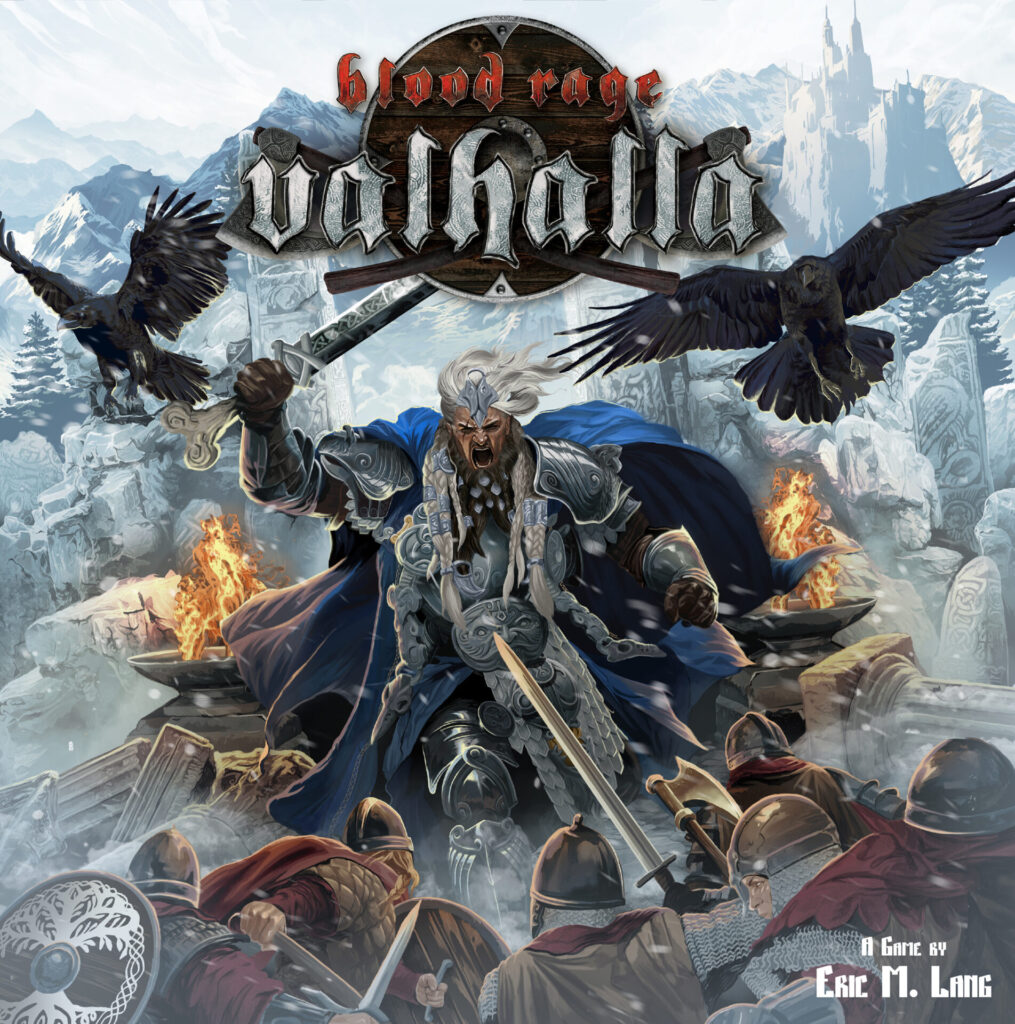
Yarrington confirmed to BoardGameWire that he had met up with Eric Lang to discuss the future of the other game lines, and said he [Yarrington] was “excited about what we’re going to be doing going forward”.
He also confirmed that crowdfunding was at the forefront of Tycoon’s strategy for new releases, which are expected to include remasters, other reworked standalone titles and the return of previous expansions into print.
Yarrington said, “I’ve done over 145 Kickstarter campaigns since the dawn of Kickstarter, so I believe I still hold the record for most campaigns. So we know a little bit about that.
“We’ve used Gamefound and Kickstarter – primarily Kickstarter, but something like the Blood Rage series might resonate better on Gamefound. There’s some functionality questions there.
“…Can we get a version of Blood Rage into Target? I don’t know. It might take years, but we want to, because we want to make these as approachable as we can.”
He added, “If you look at what we’ve done with Everdell, you have Silverfrost coming out now, that is different from original Everdell, different from Farshore – which was closer to Everdell – and we have more planned in that series.
“And then you have totally different games, like Everdell Duo, or other upcoming titles that are different vectors, as I call them, to get you into the world.
“So certainly you would look at, you know, two player options. You would look at standalone sequels that are maybe set in a different universe or a different world, right? That’s the sort of stuff you do over expansions.
“Then there’s an issue of, ‘Okay, what about the existing content? What about all the expansions that exist? What about all the existing base games that are out of print?’ Obviously, you want to get those back in stock.
“…so we can kind of confirm that, like, we are going to plan to bring back the content that previously existed for Blood Rage and Rising Sun and Ankh, and make sure that’s in the market in a regular way, so that we can continue to sell it all around the world.
“Then we’ll have new content that we’re announcing, and that will likely be standalones and, for miniatures games, sometimes you will have expansion components.
“…I think that applies to most of our acquisitions, whether that’s, you know, the CMON stuff, or stuff like Canvas, or stuff like Trailblazer: we look for things that have lines that we can then extend and either go to new worlds or new venues, or that we can approach from new vectors where we can get more people on, like we’re doing with Everdell Duo.
“‘Hey, here’s a dedicated one and two player version, lower price point’. You know, maybe that gets some new people into the world, and then they go, ‘Oh, now I want to play Everdell’. So that’s the kind of strategy overall.”
When asked if purchasing the titles from CMON was a potential precursor to Tycoon itself being acquired by Asmodee, Yarrington said, “It’s not necessarily the goal”, adding that there were “no active discussions”.
He said, “I just turned 43 last year. I’m turning 44 this year, so I’ve got some runway left, even though I’ve been around for a while.
“…we’re coming in and buying up games. Well, then you accrue a portfolio. So whether I continue and run this for generations, right, and then my kids want to take this over, like Milton Bradley and Hasbro and all of those things were created.
He added, “Whether we maintain or whether we sell, that’s a future Dan decision. I don’t have to worry about that yet.
“We know that we’ve got about a three to five year cycle here that we’ve gotta run either way. If you’re trying to grow value, whether you want to retain it or sell it in the future, you’ve gotta grow the value and demonstrate you can do it.”
Dangerous Environment
BoardGameWire put to Yarrington that now might be a dangerous time for a board game publisher to be expanding operations, given that the unpredictability of the US tariffs situation has already seen some publishers shutter operations and let go of staff.
But Yarrington was bullish on the situation, saying, “Everybody was freaking out when the tariffs were first announced – even when they were first announced and it was something reasonable… 20% or something.
“And then it was 85%, then 125%, and then 145%. And we did some thinking. We had a lot of discussions about that at that time.
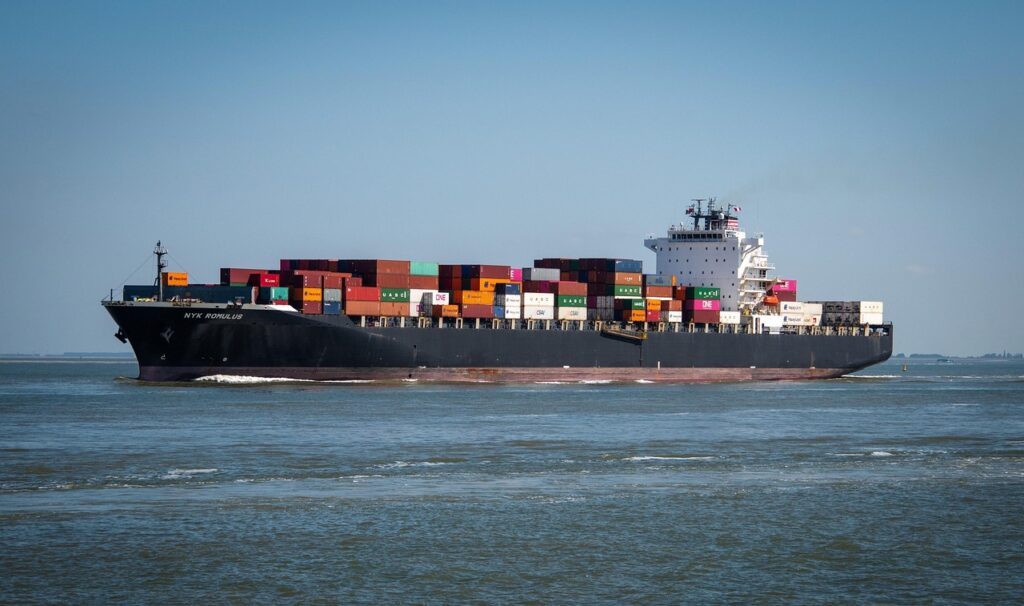
“I said, ‘Okay, if we choose to produce nothing, we’re choosing zero. We’re absolutely going to receive zero if we produce and sell nothing. So we’re not going to choose zero – we’re going to choose the other alternative, which is some amount of money, less some other amount of money, that’s still some amount of money.
“We did the math on it and we figured out – about 55%, 60% of our sales are overseas. And then a lot of our sales are direct to consumers, which we can absorb kind of more of that, percentage-wise.
“So, we say, ‘Okay, this is workable’. It’s not as profitable, but we’ve always operated as a very profitable entity to begin with. So, we’ve got more give there.
“A lot of these places, when the tariffs were announced – they weren’t even enacted yet, they weren’t in place – they said, ‘We’re going out of business because of the tariffs’.
“And I said, wait a minute. You haven’t even paid any tariffs. You don’t know… if they’re imagined, if they’re a figment.
“So, that was just kind of a convenient excuse that showed you, yeah, this, gentle breeze came by and blew down my house. That the breeze wasn’t the problem there, you had some other structural issues with your house that the breeze is going to blow it over.”
“In this case, it’s a gale wind. It’s not a breeze. this is a stiff wind, right? But we had a strong enough kind of foundation because we didn’t have any external debt, we had been saving for a while, right? And we had good fundamentals.
“…A year ago we said ‘we’re going to go on this expansion plan’. And when we look at it, we might have to tack back and forth a little bit more in the wind, right? But we’ve got the core fundamentals.
“…we actually continued our production, we continued our shipping and all of that stuff during that time frame. And that bet paid off because I said, ‘Listen, if containers show up at our shores and they’re 145% tariffs, I’m going to say throw them in the ocean’. ‘I’m not paying your tariff’. Because the economy would have been collapsing at that point, which is of course why in this game of chicken they blinked.
“…This is what I estimated early on. Within about a week, when they did the tariffs, I said, “I think it’s gonna be 20% to 30%, and I think it’s going to be widely variable, and there’s going to be crazy gyrations that go on throughout this for the next at least three years, but 20% to 30% is kind of where it’s going to end up being.
“So, that’s something: we will be less profitable, but we’ll still be growing and we’ll still have our staff and we’ll still be growing our catalogue.”
He added, “It’s actually a good time, I think, to expand when you can kind of save games from annihilation, so to speak.”
Online Criticism
Yarrington launched Tabletop Tycoon a decade ago, but his time in the industry dates back to 1996, when he sold Pokémon and Magic the Gathering cards and ran community events for local hobbyists. He stepped things up in 2003 by setting up a brick-and-mortar and online board game retail business with his wife after graduating from college.
Six years later he founded a business called Game Salute – having spotted that hobby games had grown enough that there was space in the market for a company that was not only a publisher, but that offered services to designers and other publishers that would allow them to focus on creating games.
That business grew into a large-scale manager of Kickstarter campaigns, handling areas such as fulfillment, shipping, storage and customer service for other game makers.
Game Salute operated under the tagline “providing tools and services to make the games industry a better place” – but over the years the company and Yarrington attracted significant amounts of criticism, which are often among the first things to appear when searching online for Yarrington and his businesses, or when they are mentioned in threads in places such as BoardGameGeek and Reddit.
Many refer to Game Salute’s reputation for delivering late Kickstarter projects, providing poor communication or spurious reasons for delays, while others cite complaints from designers including Phil Eklund about their treatment by Yarrington and his companies.
One of the highest-profile controversies came in 2018, when Yarrington was found liable of breach of contract after being sued by Z-Man Games founder Zev Shlasinger and business partner Paul Gerardi over his actions while running a retail game store they had launched together on Staten Island.
Yarrington had denied claims of fraud and breach of contract, and despite being found liable of the latter the court awarded zero damages, despite Shlasinger and Gerardi having filed for awards of more than $100,000 each.
Game Salute also attracted ire from backers of its 9-Shooter Quick Draw Kickstarter campaign for delivering copies without a box, or inside a plain white box, for which it apologised in the Kickstarter campaign comments for not making it clearer that the campaign would not ship in the standard game box.
Complaints also arose in 2020 when Tycoon imprint Starling Games sent out cease and desist letters to Etsy sellers crafting accessories for Everdell, requiring them to remove all instances of the name Everdell from titles and descriptions, and any images that could imply official or authorized status, in the name of protecting its intellectual property.
Other frequent refrains online include comments from people saying they used to work for Yarrington, who go on to call out poor treatment and bad business practices they claim to have witnessed in his companies.
Yarrington told BoardGameWire, “I actually want to listen to people and want to think about what they’re saying so I can digest it. But at some point you have to go ‘okay, that’s not a valid criticism’ or ‘you’re just telling a not truth’ so therefore that doesn’t matter in this – but opinions matter, right, in the marketplace, and observations matter.
“A lot of those things that you see from early on, there’s a bunch of mistakes that we made, absolutely. There’s a bunch of mistakes that other people made that they blamed us for. So you have to sort those things out.
“That’s one of the challenges of having 150 to 200 clients when we were doing our fulfillment business. We got blamed for every mistake we made, and we got blamed for every mistake that they made, which was not fair, and so I always had this rule. I said, ‘Listen, if you make a mistake and you’re going to pay for it, but I’m going to help you fix it as your provider. But if I make a mistake, I’m going to pay for it and I’m going to fix it. Those are the basic rules’.”
He added, “We just did a campaign graphic that said ‘solid as a rock’ – we’d delivered, I think at that point, 142 campaigns. We’ve never not delivered a campaign, and there’s very few people that can say that.
…maybe we didn’t do it the way people liked – I can’t control your opinion if you didn’t like the mechanics that we did, or the rules. What we did control, and this is what you saw change over time, is that we brought more under our direct control.
“A lot of times we were serving other people. We didn’t have control over that. We would have scenarios where we were at the end of the pipeline – which is honestly why we sold off that business, because we were the last person to get paid – and publishers would come to us and say, ‘Hey, I don’t have any money to pay you, but you need to ship this’.
“And we’d say, ‘Okay, but you have to pay us to ship it. We’re not a bank’. And they’re like, ‘Yeah, but I don’t want to do that.”
He added, “The bigger you get… the more that you are the king of the hill, the more people want to knock you down. And that happened to us ten years ago. We actually weren’t that big up on the hill. We were on an anthill, right?
“… I don’t think of it as good or bad. It happened. It’s out there, that’s fine, people can read into that. And I think reasonable people that then actually engage and talk to me go… ‘Why don’t you tell me your side of the story?’ And I’m like, ‘But my side of the story is out there. it’s buried in the Google results’.
“People don’t read it. Nobody goes, ‘actually this lawsuit was dismissed, or this lawsuit resulted in a zero dollar verdict’. They don’t think about those things because that’s not their interest level.”
Regarding complaints from former employees, Yarrington said, “I can’t control necessarily at this point what they feel about the experience they had. I can control in the moment, and what I do today, whether we’re aligned. That’s the goal.
“So, somebody says, ‘I want something you’re not providing’, I can’t control that. ‘I wanted you to pay me more money’. I paid you what we agreed to pay you. If you wanted to make more money, you can tell me you want to make more money. If you’re not happy, you can leave.
“If you want more control over the company, it’s like, last I checked, I’m the tycoon. I think I’m wearing the hat – that’s my plan. So, if you wanted to run your own company, you should go do that.
“So, these are a lot of the things that are underlying those comments if you think about it. So there’s more than what you’re seeing there.”
Yarrington added, “In a lot of these cases… what you’re seeing is a reflection of my intransigence to bow on the deal. If somebody threatens me and says ‘I’m going to say bad things about you online if you don’t pay my shipping bill, just do this for me, pay me tens of thousands of dollars’, I go, ‘You really made me mad right? Now I’m definitely not going to do that’, as opposed to ‘I’m going to help you solve a problem’. I don’t react well to that kind of blackmail.
“…the truth wins out at the end of the day. We do a lot more good than we do bad. I am a human being and I make mistakes every day. Every single day I make mistakes. And that’s not the measure of a person, it’s what do you do with that.”





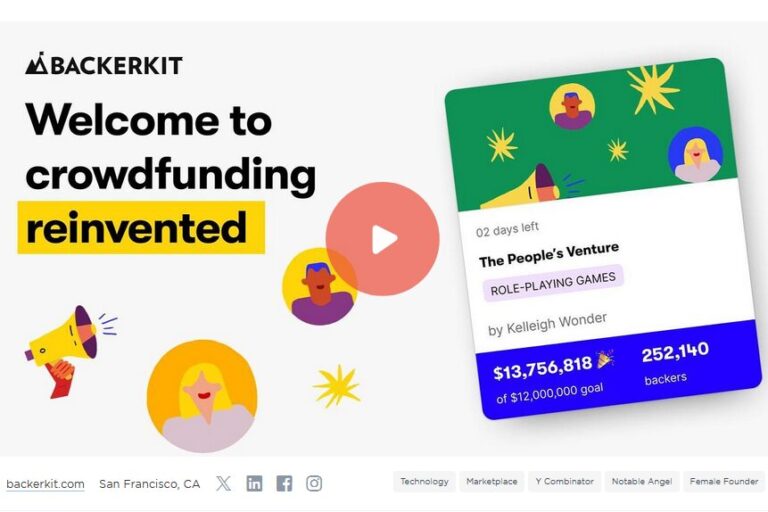
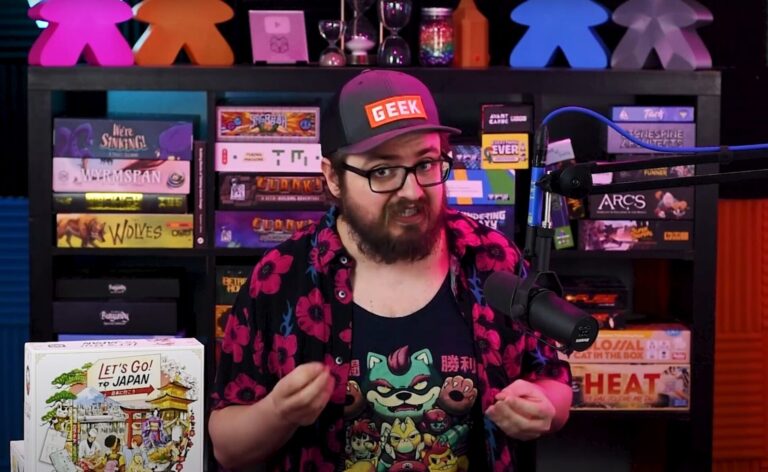

[…] https://boardgamewire.com/index.php/2025/07/07/were-like-a-tiny-epic-asmodee-tycoon-games-ceo-dan-ya… […]